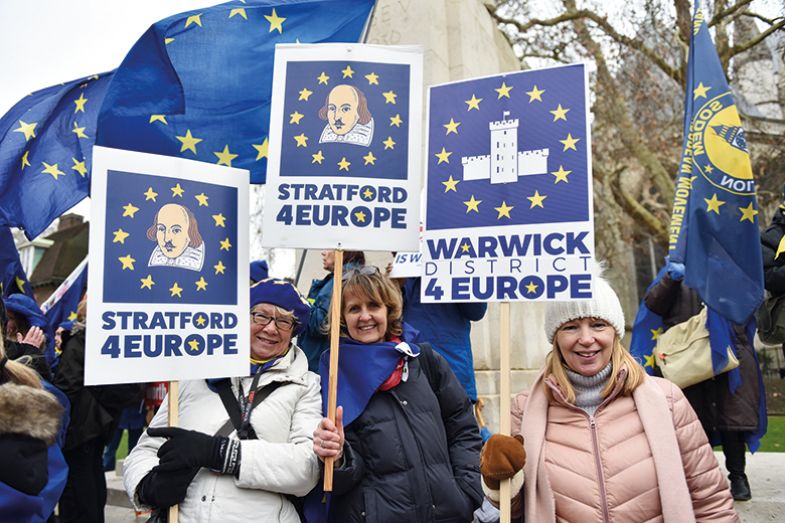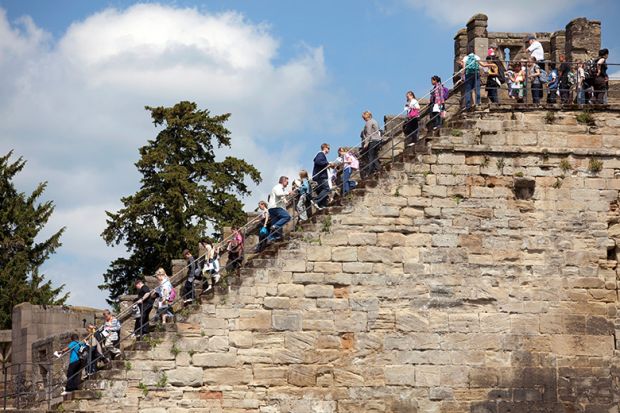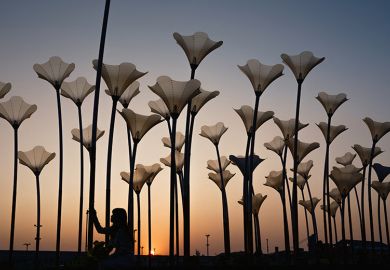Browse the THE Young University Rankings 2019 results
Doris Day, who recently passed away, is reported to have said that “middle age is youth without levity and age without decay”. But while the University of Warwick’s 54 years may equate to middle age in human years, in relation to the ages of all UK universities, we are in the same age range as many undergraduates at Warwick. We act a lot like them too.
First, like our students, we won’t just come to a halt if someone puts up barriers. The idea for a university in Coventry was mooted shortly after the end of the Second World War. Bid after bid by Coventry and Warwickshire’s local authorities was rejected by successive governments, but persistence won the day and Warwick received its Royal Charter in 1965. (Coventry now has two fine universities.)
However, just 16 years later, disaster struck the sector with the Thatcher government’s university cuts. Many universities took the hit and retreated but the brash Warwick took a much bolder approach of “saving half” the government funding but also “making half” through new income streams. In fact the “making half” gambit became so successful that today Warwick generates or successfully competes for almost 90 per cent of its own income.
That lateral thinking and refusal to accept barriers remain central traits of Warwick today. Just three years ago a new political disaster struck not just the higher education sector but the whole country. Yes, I do mean the “B word”. We clearly said “no” to Brexit and not just because almost 59 per cent of the Warwick district, where many of our staff and students live, voted to remain in the European Union. We said, and still say, no because the second way that Warwick resembles a great many of our students is that we are global citizens. We want to understand, engage with and help our whole world at a time when we face many global problems that require international collaboration and research to solve.
The whole Brexit process remains uncertain but Warwick is not prepared to wait out that uncertainty, or simply stop at a Brexit barrier. We decided to act ourselves to preserve and build on our links with the rest of Europe. In March last year, we launched major new teaching and research collaborations with the University of Paris-Seine and Vrije Universiteit Brussel under a new European university alliance known as Eutopia.

Where are we now? Well, politicians are still deliberating almost three years after the referendum, while, just one year on, Eutopia has doubled in size to six institutions, is bidding to be one of Emmanuel Macron’s European university networks, and has launched its first joint postgraduate scholarships.
Warwick is breaking through other barriers to pay the historic debt to those Coventry and Warwickshire local authorities that pushed so hard to create the university and donated the first land for our campus.
One such initiative is our recently announced transformational social mobility programme, Warwick Scholars. It aims to change the lives of hundreds of young people in the Midlands who have great potential but may face social or economic barriers to entering Warwick. It focuses on prospective students from disadvantaged backgrounds or groups underrepresented in higher education within 30 miles of our main campus. The new programme is forecast to cost almost £10 million a year when running at full capacity and includes contextual admissions offers that may be up to four A-level grades below Warwick’s standard offer.
Warwick has given back to the community that helped to create us in many other ways, too. Just nine years after getting our Royal Charter we opened Warwick Arts Centre, now one of the UK’s biggest arts complexes outside London. Currently, it is being further enhanced to be ready as a key venue in Coventry’s year as UK City of Culture in 2021.
Warwick has also emphatically delivered on its founders’ hopes for it to support the local economy. Warwick’s overall economic impact on the West Midlands is now almost £1 billion a year. We employ more than 6,600 staff and directly sustain a further 9,245 jobs in the West Midlands.
We won’t stop there. The next development that we are exploring is the creation of a Warwick Innovation District, bringing together research, teaching and enterprise to help solve some of the most pressing challenges faced by business and society.
But I would like to end on people rather than buildings. Of the many remarkable Warwick students and staff, one of the most remarkable had to be Lord Kumar Bhattacharyya (pictured inset). In 1980, he joined Warwick as a professor and created the internationally renowned research, training and technological powerhouse that is Warwick Manufacturing Group. We lost him this term. His memorial service in Coventry Cathedral was attended, and commented on, by many leaders in government and industry. Business secretary Greg Clark said: “Hundreds of thousands of people in Britain owe their livelihoods to Kumar.” We mourn him but also treasure his legacy that lives on as WMG continues to expand and launch even more research and training partnerships.
Drive and international vision are defining characteristics of not just Kumar but students and staff throughout our community. I am confident that Warwick is at this very moment helping to empower a great many more Kumars in the arts, industry and policymaking sectors and wherever our world needs people with a global vision and an abhorrence of barriers.
Stuart Croft is vice-chancellor and president of the University of Warwick.
Register to continue
Why register?
- Registration is free and only takes a moment
- Once registered, you can read 3 articles a month
- Sign up for our newsletter
Subscribe
Or subscribe for unlimited access to:
- Unlimited access to news, views, insights & reviews
- Digital editions
- Digital access to THE’s university and college rankings analysis
Already registered or a current subscriber?







